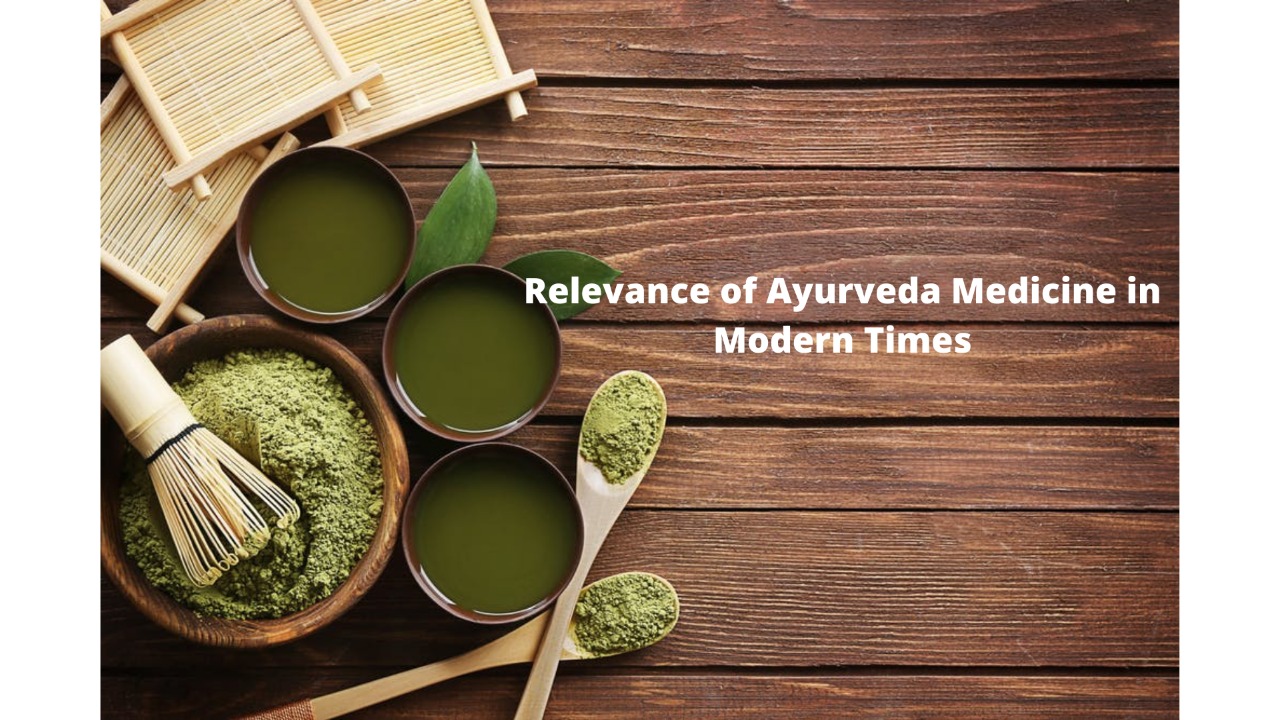
Ayurveda has come a long way from being restricted to native villages in far off lands. Today it is a recognised system of medicine in 16 countries across the world including UAE, Saudi Arabia, Switzerland and Brazil. The relevance of Ayurveda medicine in modern times is more pronounced than ever. The recent pandemic has taught us the real value of strengthening our core and immunity. And Ayurveda specialises in just that. So if you are looking for Ayurvedic treatment in Dubai, then read along to get more insight about Ayurveda.
Ayurveda is an ancient Indian branch of medicine that relies heavily on natural ingredients such as herbs for medical purposes. The innate ability of Ayurveda to find the main cause and cure the ailment rather than the symptoms is what makes it special. The main cause of ailments, according to Ayurveda, is an imbalance in the body's Doshas. During the monsoon season, the Kapha and Pitta doshas are most affected. In the same way that the earth renews itself every autumn by losing old leaves, Ayurveda recommends doing a full-body cleanse during the rainy season.
Dhatus are bodily tissues that are responsible for the proper functioning of the body's organs, systems, and structure. Rasa, rakta, mamsa, med, asthi, majja, and shukra are the seven dhatus that make up the body. Ayurveda's three pillars are food, sleep, and celibacy. It is critical to keep this tripod in good working order in order to live a healthy life.
The ancient Ayurvedic approach was most likely motivated by insight, intuition, and keen observation of human behaviour and environment. Several Ayurvedic therapeutic procedures are based on the idea that "the soil is more essential than the seed." The system firmly encourages a unique set of ideas and rules on nutrition and exercise in everyday healthy living, with an emphasis on self-discipline and modest living with high human values.
Biomedicine, on the other hand, is based on a reductionist approach to health and illness and seeks to eradicate pathology first and foremost. Although clinical examination is crucial, science as a whole is very impersonal, and when it comes to treating patients, it often ignores individual characteristics (genetic or other). Disease susceptibility and prevention are more environmental and genetic factors than those of "wholesome host strengthening."
Ayurveda is not a standardised discipline. It is possible that two vaidyas will differ depending on the therapy. What appears to be excellent in the North does not appear to be good in the South. There is some justification for such differences. Geography, climate, and local agricultural techniques all have a significant impact on medicinal plants. The individual constitution is a critical part of clinical evaluation. Seasonal changes are significant in Ayurveda. Interestingly, none of this appears to matter much in modern medicine, where ailments are defined and treated according to predetermined criteria, one-size-fits-all.
In this post-independence gloom in Ayurveda, ironically, the herbal pharmaceutical sector grew strong roots and prospered. Its expansion was aided by a powerful Ayurvedic pharmacopoeia. Both the legislation and the rules were slack. The business stated that its production techniques were in accordance with traditional Ayurvedic literature. It advertised a wide range of medical claims based on a lack of or inadequate research.
Even many contemporary physicians administered herbal medications for difficult-to-treat ailments despite having little understanding of the importance of Ayurveda(and despite legal professional limits). Ayurvedic treatments gradually began to follow the route of contemporary medicine. Another myth was spread, claiming that Ayurvedic medications had no negative effects. This fueled the community's fixation with pharmaceuticals, and diseases that required lifestyle changes were instead treated with polypharmacy. It is wise to emphasise that Ayurveda should teach the community the fundamentals of Ayurvedic administration. Furthermore, the community should recognise that Ayurveda is really a holistic discipline that goes well beyond medications to treat and heal.
There has been a rise in worldwide interest in Ayurveda during the last few decades. To a considerable measure, this is due to the public's dissatisfaction with contemporary pharmaceuticals. The Ayurveda pharmaceutical business saw this as a marketing opportunity. Ayurveda as a system was not promoted even though the exports of drugs increased .
Ayurveda is not legally recognised in many nations, and the use of Ayurvedic remedies is restricted. In certain countries, like the United States, Ayurvedic pharmaceuticals follow a shortened, less demanding regulatory trail for "food and diet supplements" and are offered over the counter as health items rather than medicines.
Dr Jasnas Clinic - Best Kerala Ayurvedic Centre in Dubai
Fortunately, the UAE government was wise enough to recognise the prowess of Ayurveda in healthy living and has understood the role of Ayurveda in today’s modern day problems. In fact, the government has rewarded the efforts of a few pioneers in Ayurvedic excellence in the UAE with the prestigious Golden Visa. Dr Jasnas Ayurveda Clinic is the best Ayurveda clinic in Dubai that was the recipient of this recognition. With decades of experience and a true passion for human life, Dr Jasna’s Clinic has truly become a true example for a professional Ayurvedic Clinic In Bur Dubai.